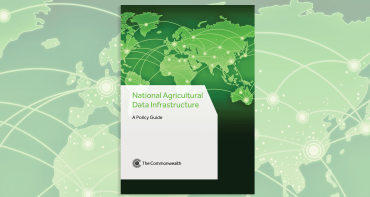Micro, small and medium businesses (MSMEs) in Sri Lanka are gearing up to take advantage of new proposals that will boost participation in global e-commerce.

Micro, small and medium businesses (MSMEs) in Sri Lanka are gearing up to take advantage of new proposals that will boost participation in global e-commerce.
The Commonwealth is working with the Export Development Board of Sri Lanka to assess the e-readiness of the country and to identify opportunities for MSMEs. Experts are now consulting with counterparts in the Sri Lankan government to assess e-commerce potential.
Indira Malwatte, CEO of the Export Development bank said: “E-commerce has been directly impacting the large, micro, small and medium (MSME) in Sri Lanka. It has a cascading effect on all industries. The government is currently using e-service platforms to streamline certain government services."
The e-readiness assessment report will assist the country to put in place effective legal policy, make recommendations for fast-tracking the implementation of reforms, and enhance opportunities for growth for a large number of MSMEs owned by women who have a limited command of English - the dominant language of digital trade.
“There is a potential to expand e-commerce in Sri Lanka. Therefore, it is important to identify the gaps and implement the recommendations made in the e-commerce readiness assessment report,” added Ms Malwatte.
Increasing the capacity of women will enable them to expand their business activities, leading to growth in the economy, creating jobs and raising household income.
The five parameters considered in the Sri Lanka E-readiness Assessment Report are:
- Citizen maturity
- Business readiness
- IT infrastructure and accessibility
- Logistics and delivery
- Policy and regulations
Online sales have been picking up fast in Sri Lanka, which is seen as an emerging market in South Asia. Analysts believe the country has tremendous growth potential, and could become a leading player in the e-commerce space in the region.
Sri Lanka's e-commerce sector is driven by consumers using mobile phones and tablets to purchase products online. Many MSMEs are limited by lack of access to technology or difficulties in understanding the rudiments of e-commerce processes. The Commonwealth project will help them overcome these obstacles.
Speaking from Colombo, Commonwealth Trade Adviser and project manager Opeyemi Abebe said: “E-commerce is widely recognised as an important tool for innovation, competitiveness, job creation and growth.
"It presents a huge potential for entrepreneurs and small and medium enterprises from developing countries such as Sri Lanka and small states to expand their market reach and make their goods and services available to overseas buyers though digital platforms”.
The result of the assessment was presented to stakeholders from Government agencies, the organised private sector representatives and all stakeholders involved in the digital trade landscape of Sri-Lanka.



